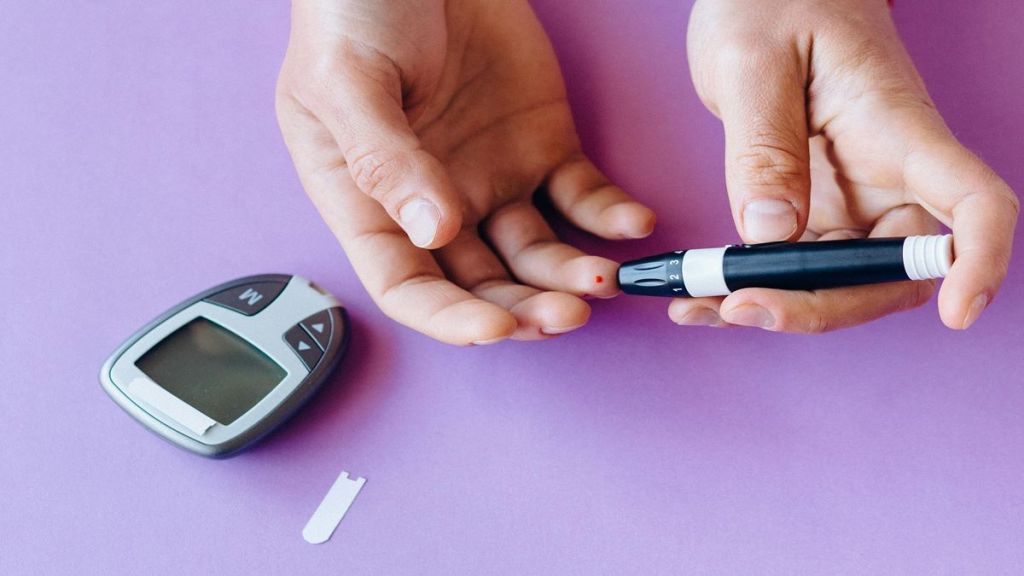COVID-19 and its impact on the human body continues to be a cause of concern among doctors and health experts. Moreover, the impact of COVID-19 infection on children has been worrisome as multiple studies suggest that they are prone to develop serious complications.
According to the World Health Organization (WHO), children and adolescents are generally at low risk of infection, and if they become infected it is likely to be mild. However, some children and young people have had severe experiences with the disease, and a few have died.
Some studies have also revealed that the COVID-19 pandemic has led to an unusual spike in type 1 diabetes among children and teenagers. According to a 2023 study published in the JAMA Network Open, it is unclear what has triggered the surge in cases.
Dr Asmita Mahajan, Consultant Neonatologist & Paediatrician, S.L. Raheja Hospital, Mahim – A Fortis Associate told Financial Express.com that there has been a spike in type 1 Diabetes cases in children post the COVID19 pandemic, though no definitive, causal relationship has been established so far.
“Research on this issue in the Indian context has not been done yet. I have not encountered any such cases, but there are hypotheses suggesting that the virus might play a role in triggering autoimmunity in children, which causes the immune system to work against the endocrine organs like the Pancreas. There is another theory that opines the beta cells of the Pancreas may have been damaged in those children who had COVID-19, and this may trigger type 1 Diabetes. I believe extensive research is needed, as only preliminary information is currently available on this topic,” Dr. Mahajan said.
Meanwhile, Dr. Jesal Sheth, Senior Consultant – Pediatrics, Fortis Hospital Mulund highlighted that during the pandemic in 2021 and 2022, we had seen a rise in type 1 diabetes, the increase was significant as compared to previous years.
“It was believed to be due to the direct effect of SARS-COV 2 on the pancreas. It is hard to comment on percentage in terms of the rise as we are a tertiary care centre. So, we get patients who are severely unwell and have developed further complications like diabetes, and ketoacidosis and need pediatric intensive care unit (PICU) admission,” Dr. Sheth told Financial Express.com.
However, we are still seeing children presenting to us with diabetes and ketoacidosis, but numbers are much like pre COVID times, Dr. Sheth said.
The 2023 study also found that the increased incidence rate of type 1 diabetes appeared to persist beyond the first year of the pandemic. “A better understanding of the possible direct effects of SARS-CoV-2 infection and the indirect effects of pandemic-related containment measures on incident diabetes in children is needed,” it stated.
“Over the past two years, several studies and reports have linked COVID-19 with an increase in Type 1 Diabetes in children. Type 1 Diabetes occurs due to poor or no production of insulin from the pancreas in genetically predisposed individuals, often triggered by environmental factors, including viral infections. The SARS-CoV-2 virus, which causes COVID-19, emerged in 2019 and has affected nearly the entire global population, often more than once over the last four years. During this same period, the incidence of Type 1 Diabetes in children and adolescents has increased two to three times,” Dr. Himanshu Batra, Consultant – Pediatrics at Manipal Hospital, Dwarka told Financial Express.com.
Most studies from Europe and the U.S. support a causal association between the two, as the COVID-19 virus is known to damage insulin-producing cells in the pancreas and dysregulate the immune system, leading to increased production of autoantibodies against these cells, Dr. Batra informed.
Additionally, other factors such as changes in lifestyle, including more sedentary behavior, altered eating habits, and increased stress, may have played a role.
“Based on the data, the incidence of Type 1 Diabetes has definitely increased post-COVID-19. It is crucial for the public to recognize the early symptoms, especially those with a family history of the condition, so that children can be diagnosed early before progressing to severe complications such as Diabetic Ketoacidosis (DKA). Early symptoms include excessive urination, excessive thirst, weight loss despite adequate diet, and getting tired easily,” Dr. Batra told Financial Express.com.
If parents notice any of these symptoms, they should consult a doctor and have their child tested to ensure timely diagnosis and appropriate treatment, he added.

